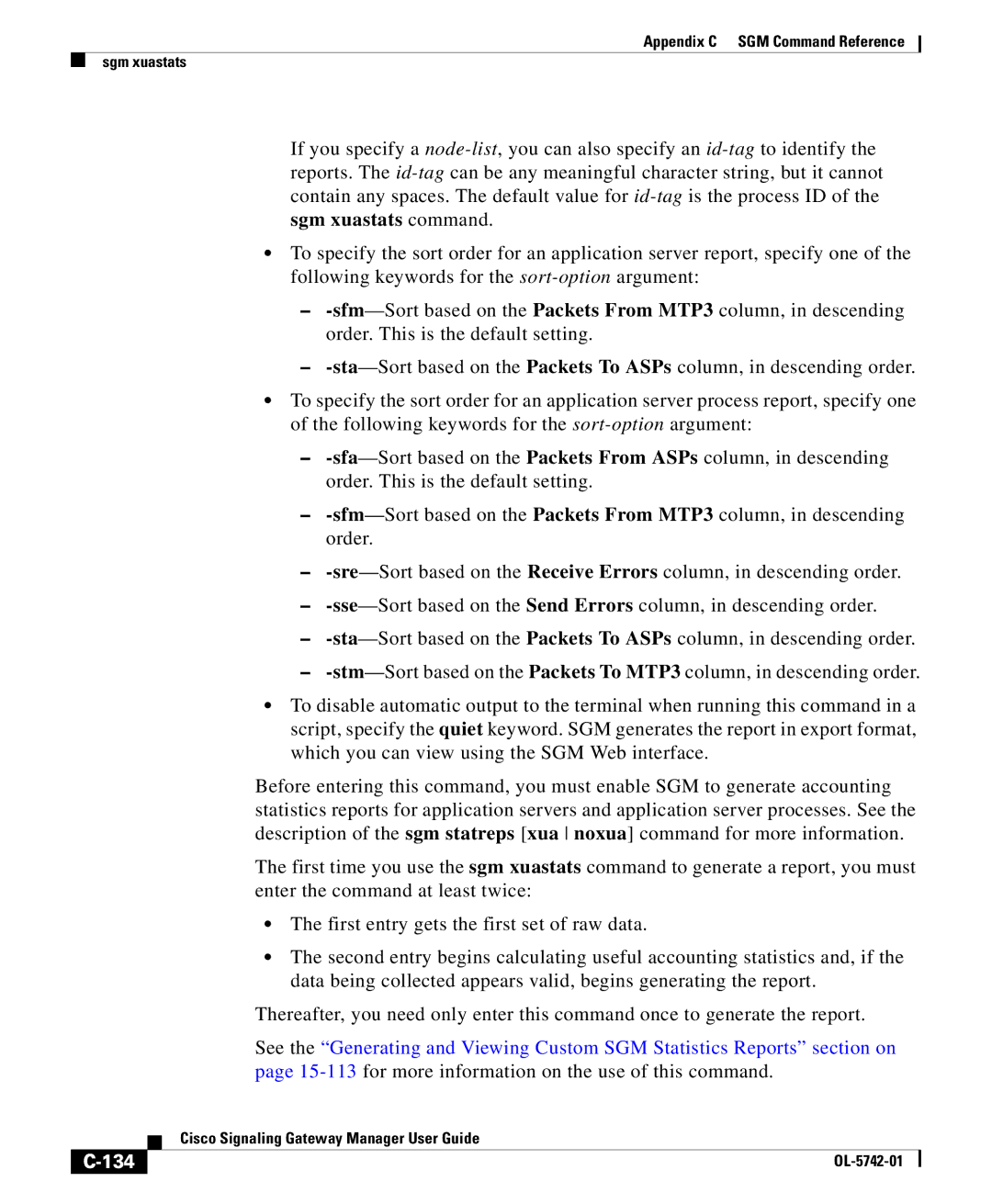OL-5742-01 specifications
Cisco Systems OL-5742-01 represents an essential advancement in the field of network infrastructure, tailored for organizations that demand robust, reliable, and scalable solutions. As part of Cisco's offerings, this device stands out for its comprehensive features and the technologies embedded within its design.One of the main features of the OL-5742-01 is its support for advanced routing protocols. The device is engineered to handle both static and dynamic routing, making it versatile for different networking environments. This flexibility allows organizations to efficiently manage data traffic, ensuring optimal performance and minimal downtime. In addition, its built-in redundancy mechanisms ensure that network operations remain uninterrupted, offering peace of mind for mission-critical applications.
The OL-5742-01 is also designed with a focus on security. It incorporates a variety of security features, including advanced encryption protocols, firewall capabilities, and intrusion detection systems. This multilayered approach helps safeguard sensitive data from a myriad of cyber threats, which is particularly crucial in today's digital landscape where data breaches and cyberattacks are prevalent.
Furthermore, the device supports a range of connectivity options, making it suitable for various deployment scenarios. With multiple Ethernet ports and options for fiber connections, it adapts to the specific requirements of an organization's infrastructure. Its ability to support both wired and wireless connections enhances flexibility, allowing for seamless integration into existing networks.
Another noteworthy characteristic of the OL-5742-01 is its scalability. Organizations can easily upgrade their network infrastructure by adding additional units or expanding current capacity without overhauling their entire system. This feature is invaluable for businesses anticipating growth, as it aligns with their evolving needs.
The management of the OL-5742-01 is streamlined through its user-friendly interface, which allows network administrators to monitor and manage the device efficiently. Advanced diagnostic tools assist in troubleshooting, enabling rapid identification and resolution of issues, thus reducing potential network downtime.
In conclusion, Cisco Systems OL-5742-01 is a powerful networking device that encapsulates security, scalability, and advanced routing capabilities. Its features and technologies cater effectively to the demands of contemporary organizations, making it a reliable choice for building and maintaining resilient network infrastructures.

